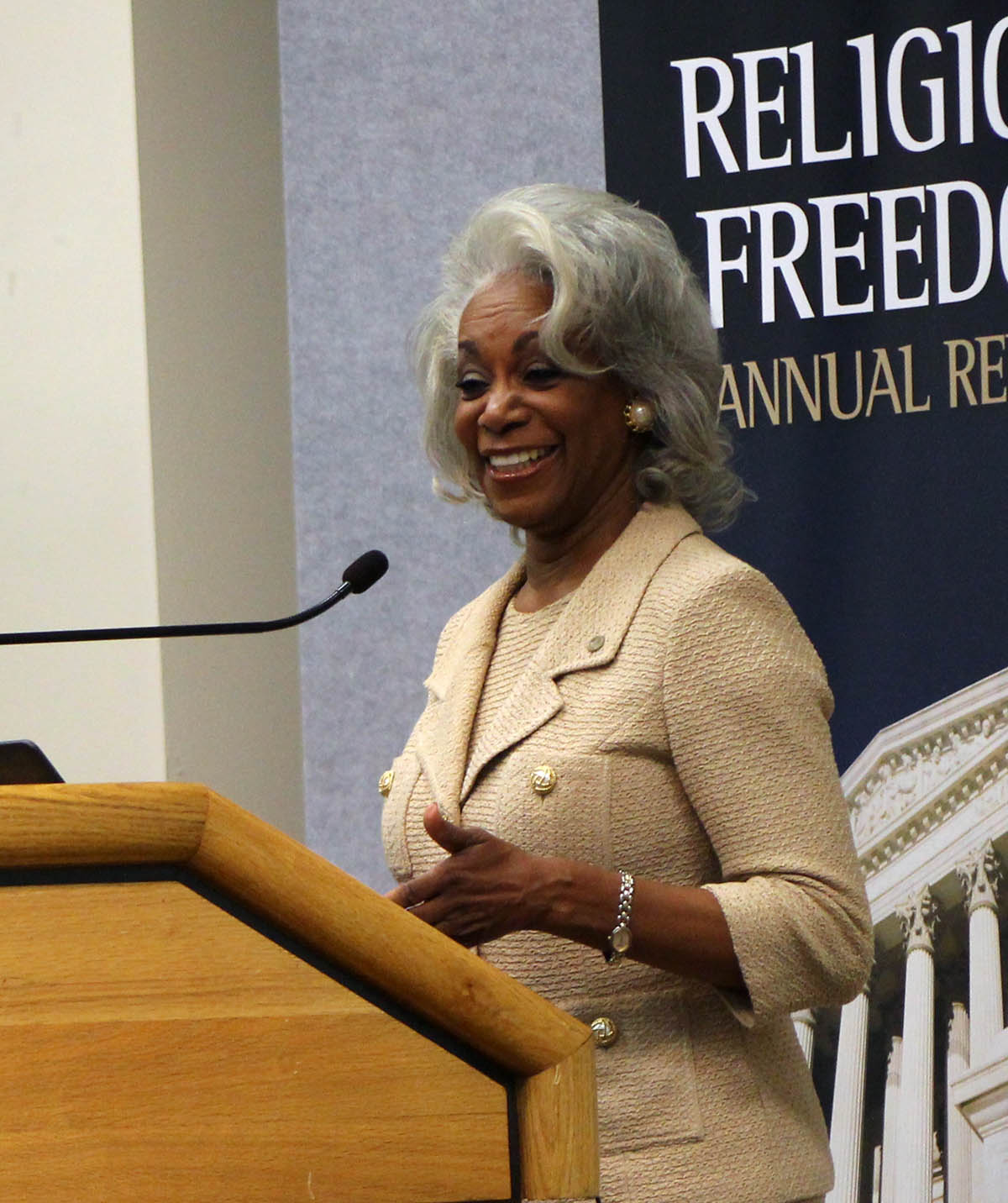General Session: Why Religious Freedom Matters to Me – Helen Easterling Williams & William Atkin

by Joshua Prince, 2016 ICLRS Student Fellow
ICLRS Associate Director Jane Wise moderated the first general session on July 7, 2017. There were two speakers: Helen Easterling Williams, dean of Pepperdine’s Graduate School of Education and Psychology, and William Atkin, Associate General Counsel for The Church of Jesus Christ of Latter-day Saints. Each spoke on what religious freedom meant to them individually.
Helen Easterling Williams spoke of Biblical experiences that show how connected mankind is with deity. She read from passages throughout the Bible that pointed to a strong truth, that she is a “daughter of the most high god.” From these passages, mankind can know for sure that man is endowed with God’s DNA and blessed with His proclivities. She argued that these scriptures established both her cultural and her biblical identities.
Williams said that “religious freedom allows us to explore both realistically and authentically.” Through religious freedom, we can be “full and whole” in the face of diversity. It allows us to be our authentic selves, not “the figment of other people’s imagination.”
She said that as we move forward as our authentic selves under the protective umbrella of religious freedom, we gain something truly priceless—communion with God. “Why does religious freedom matter to me? Because by faith, the Holy Spirit has brought us thus far, and we must connect with the Holy Spirit 24/7, 365.”
William Atkin said that religious freedom matters to him because religion matters to him. He asked the audience what they would be if they didn’t have religion in their lives. He expressed concern about the ability of the religious to make a living without sacrifice of their beliefs. He spoke of how growing up, he never experienced any discrimination for his religion from anyone, but that now, fifty years later, the ability of the religious to express their opinions in school, at work, or in the public square is being challenged.
The solution that he proposed was simple, yet profound. We must revive religion and civic virtue at the individual and family levels for religious freedom to be properly preserved.